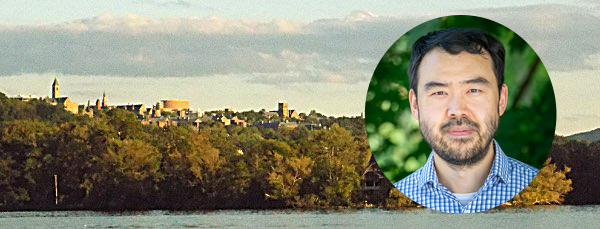- By Lindsey Hadlock
- Around Town
 Print
Print 
Solar power will be a key to New York achieving its mandated climate goals of obtaining most of its electricity from renewable sources by 2030 and having carbon-free electricity by 2040. And fulfilling these goals could require large swaths of cleared farmland for immense, land-intensive solar projects.
Max Zhang, a Cornell University professor in the Sibley School of Mechanical and Aerospace Engineering, has been awarded a 2 ½-year, approximately $200,000 grant from the New York State Energy Research and Development Authority (NYSERDA) for work aimed at determining efficient solar farm array configurations to avoid land-use conflicts or spoiling precious agricultural space.
"By looking at history, we've seen energy transition before," he said. "A few centuries ago, we used wood, and then coal and later we used oil. So, right now we're moving away from carbon energy at breakneck speed into green energy. Siting utility-scale solar energy projects throughout New York will become a major challenge that inevitably policymakers must face."
Zhang's team will monitor 10 representative solar farm sites throughout New York to examine microclimates, solar radiation, temperature and soil moisture to see whether agriculture and energy development – so-called "argrivoltaics" – can coexist.
"We want to provide a scientific basis to guide future utility-scale solar development in New York state," Zhang said. He hopes to engage policymakers, solar developers, farmers, local officials and community organizers to effectively disseminate the research findings.
v16i41



